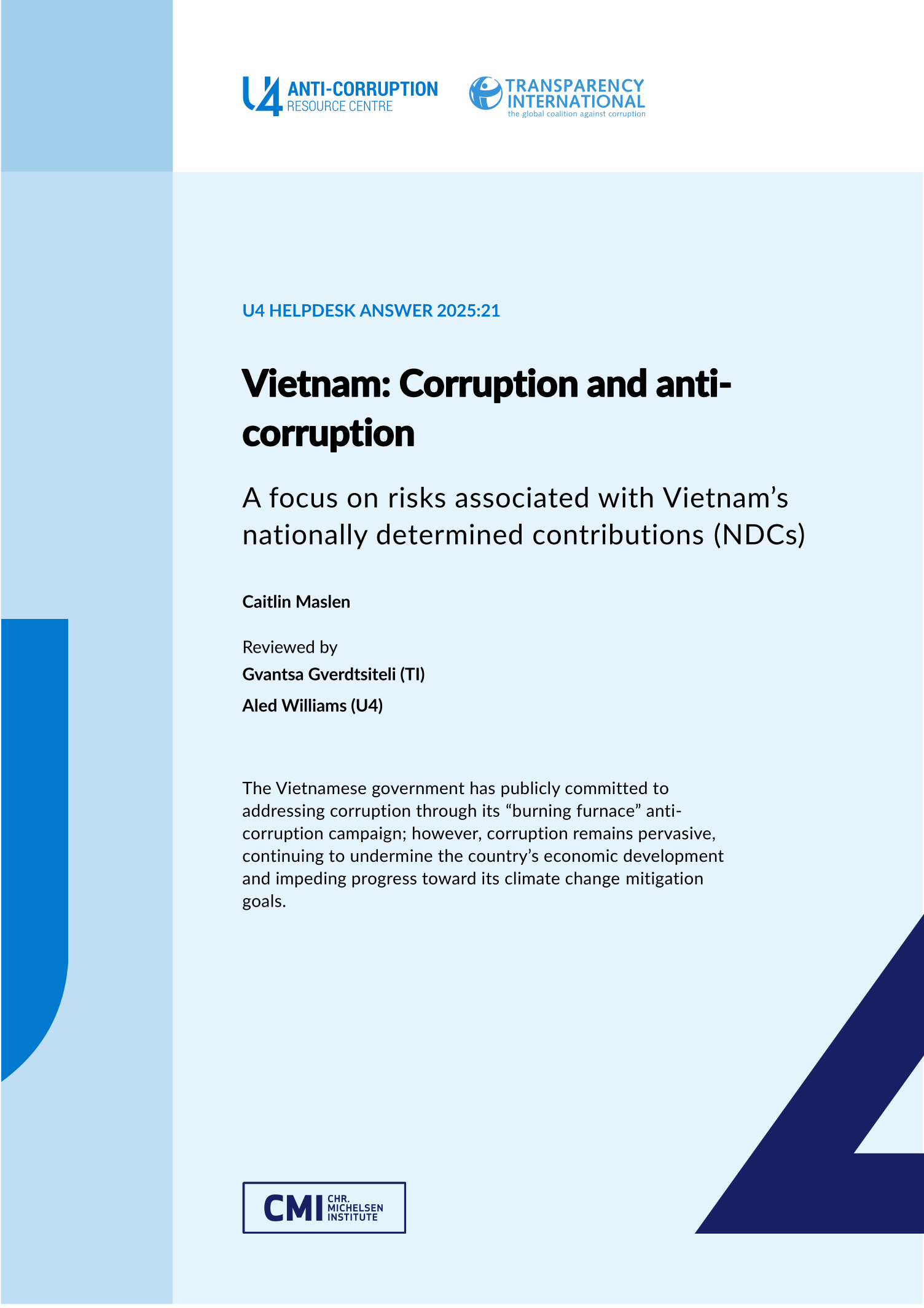Main points
- Power remains centralised in Vietnam, under the Communist Party of Vietnam (CPV), despite elections being held for the national assembly. Some literature argues that this has led to nepotism being common throughout the political and public spheres, as well as increased red tape and bureaucracy in policy implementation.
- The CPV has initiated the “burning furnace” anti-corruption campaign in recent years, leading to the disciplinary action and prosecution of thousands of public and political officials. However, some argue that this campaign has been used to prosecute political opponents.
- Bribery remains widespread in Vietnam, from high levels of governments conducting complex schemes to lower-level petty bribery from law enforcement and other public officials. Many reportedly see petty bribery as commonplace, and it is arguably driven by low salaries in the public sector.
- Vietnam is also taking significant steps towards achieving its nationally determined contributions (NDCs) under the Paris Agreement; however, these are overshadowed by similar issues with bribery and slow implementation of policies. Other risks have been raised regarding the carbon market, insecure land tenure for local communities where reforestation projects are planned, and a lack of equal benefit distribution.
- A lack of freedom of expression and assembly lies at the centre of many of these challenges, particularly in the context of the green energy transition and reforestation or forest conservation efforts where civil society could serve as a crucial intermediary and help strengthen project governance. There have been several recent reports that environmental activists have been arrested in Vietnam.
- While the country has focused heavily on anti-corruption and set up many government agencies to root out corruption internally within the CPV and in other areas, corruption still remains high and there are areas where progress can be made.


